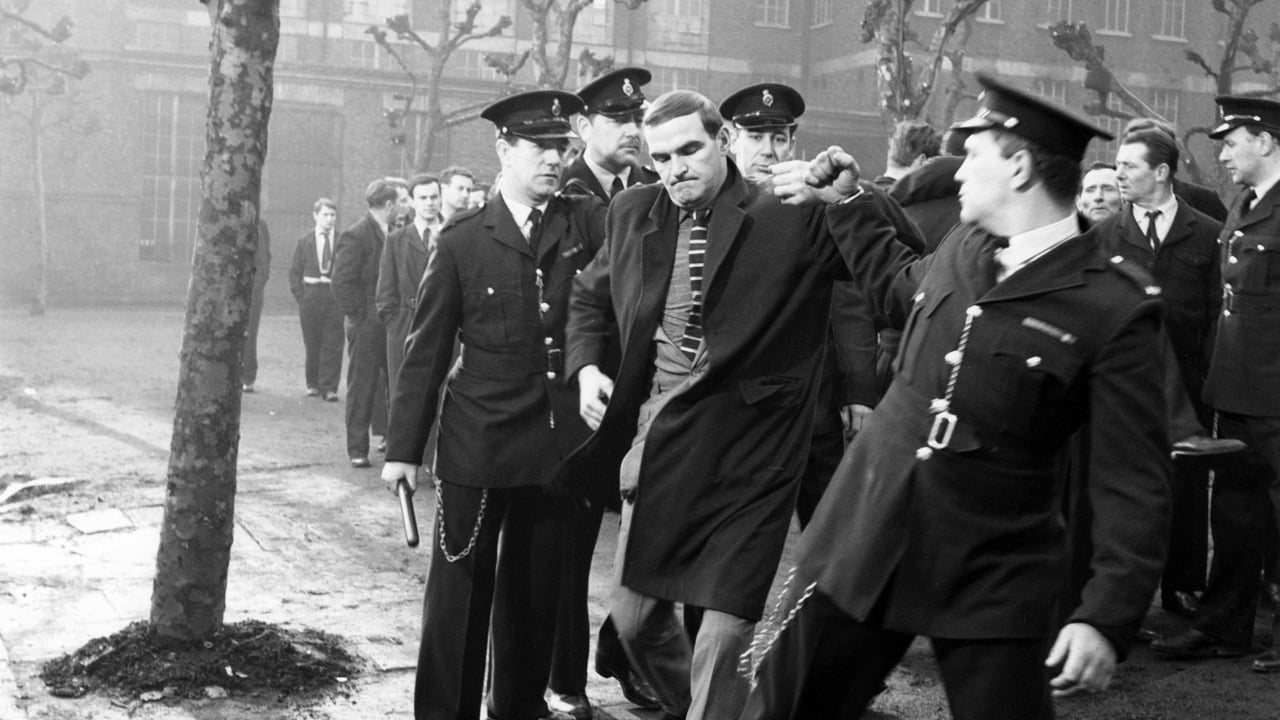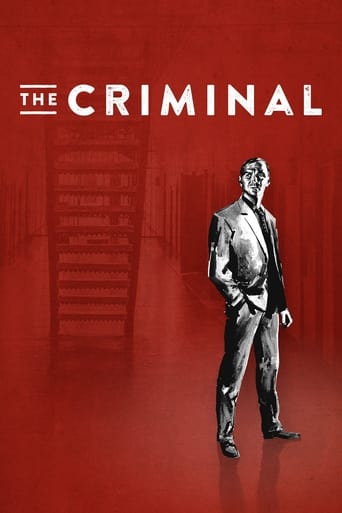

Expected more
... View MoreIt's funny watching the elements come together in this complicated scam. On one hand, the set-up isn't quite as complex as it seems, but there's an easy sense of fun in every exchange.
... View MoreThe film was still a fun one that will make you laugh and have you leaving the theater feeling like you just stole something valuable and got away with it.
... View MoreIt's the kind of movie you'll want to see a second time with someone who hasn't seen it yet, to remember what it was like to watch it for the first time.
... View MoreTHE CRIMINAL is another star vehicle for the continually underrated Stanley Baker, an actor who enlivened every film in which he appeared. This one's a low key prison drama for the most part, in which Baker plays a robber who hides some loot in a field but soon finds himself pursued by his fellow gang members desperate to get their hands on the stolen goods. The film is divided into two parts, with the realistic depiction of the mundanity and brutality of prison life contrasting with more familiar criminal behaviour on the outside. It's not the most exciting film in existence, only really picking up in the last twenty minutes or so, but a finely-judged cast of character actors see it through. Highlights include a suave Sam Wanamaker as the fixer, Patrick Magee as a nervy prison guard, and plenty of others including Noel Willman and Kenneth Cope.
... View MoreJoseph Losey's film has acquired something of a reputation since it's release way back when, though it's hard to see why. Stanley Baker playing the eponymous villain is convincing enough but the script and characterisations are weak. This is particularly evident in the prison scenes which comprise most of the film. The incarcerated are stock characters so beloved of British films of this period and they perform true to type (ie terribly). The exception is one of Beckett's favourite actors Patrick Magee, his sinister prison guard is a real stand-out. Aside from his performance the other outstanding feature is the photography from Robert Krasker which, ironically, suggests what a great film this could have been.
... View MoreNo doubt about it, Stanley Baker is a riveting screen presence. He commands just by appearing. Maybe it's that patented jut-jawed intensity. In my little book, he's the main reason for catching up with this British crime drama, which otherwise is a disappointment considering that noir-master Joe Losey is in charge.Admittedly, I lost some of the British dialogue because of my American ears. Nonetheless, there's a one-note monotony to the visuals, the characters, and the storyline-- no one can be trusted, life is grim, and the visuals rub our nose in the ugliness. Still, the movie is titled Concrete Jungle, not Concrete Vacation, so as far as the marquee is concerned, there is 'truth in packaging'. Nonetheless, there's little suspense or tension in the screenplay, an odd outcome for a crime drama. Events simply follow on one another without much structural development. Why the robbery itself is passed over is puzzling since that would have provided needed suspense. My guess is that a detailed depiction would have followed too closely on the heels of Kubrick's superb racetrack robbery in The Killing (1956). But, whatever the reason, both the crime and the aftermath are dealt with in unimaginative fashion.Losey does keep things moving in fast-paced style, while Wanamaker's slippery gangster represents an interesting character. Nonetheless, the result lacks the compelling social ambiguities of his better American films. All in all, I agree with reviewer BOUF—the result is "clunky and uneven", with an "under-developed script". Considering the source, I expected better.
... View MoreA haunting and unique depiction of prison and criminal life in Britain in the early 1960s. 40 years after its release I still wish to see this film. Before the Great Train Robbery and the prison riots of more recent times the violence and tension portrayed in the work seem to strike a very deep chord which anticipates these later events.
... View More